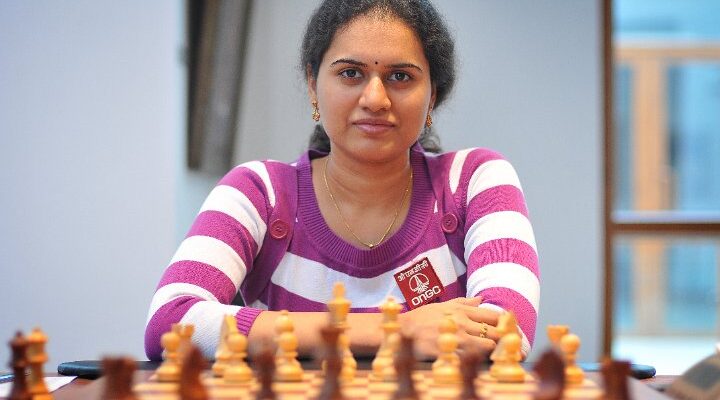The demanding world of elite chess requires unwavering focus, immense dedication, and often, significant time away from home. For India`s celebrated Grandmaster Koneru Humpy, these prerequisites are met not in isolation, but in constant negotiation with the profound responsibilities and inherent joys of motherhood. Her recent triumph in December 2024, where she secured her second Women`s World Rapid Chess Championship title, stands as a powerful testament to her extraordinary ability to navigate this complex dual role.
Humpy`s career is marked by early brilliance; she was, for a time, the youngest woman ever to earn the coveted Grandmaster title, achieving the feat at just 15. Her first World Rapid title in 2019 was particularly poignant, arriving only two years after the birth of her daughter, Ahana. This pattern—reaching peak performance while simultaneously embracing family life—underscores a level of resilience and skill that extends far beyond tactical board play.
Competing at the highest level inevitably involves extensive travel. For a mother, this separation brings a unique emotional dimension. Humpy acknowledges the challenge of keeping her focus during tournaments, sometimes needing to deliberately suppress thoughts of her daughter to maintain the required mental intensity. It is, she notes with pragmatic realism, a tough but necessary sacrifice for those aspiring to world championship status. The pervasive “mom guilt” is a very real component, perhaps best illustrated by the memorable incident of missing her daughter`s birthday due to travel delays – a lapse that, she recounts with a touch of weary humor, has not been entirely forgotten or forgiven.
Yet, Humpy embodies a fierce, adaptive spirit. She observes, with a hint of irony, that women, and particularly mothers, are inherently skilled at multitasking – a capacity she playfully suggests might be less developed in their male counterparts, at least concerning the nuances of childcare. This perspective subtly highlights a societal reality where the primary burden of caregiving often falls to the mother, adding an often-invisible layer of complexity to a professional career. Her ability to rebound from early setbacks, such as losing her very first game in the tournament she ultimately won, speaks volumes about her fighting spirit, driven by a simple yet potent goal: “to play my best, give the toughest fight I could.”
Her remarkable journey is not solely a narrative of individual grit; it is also a compelling illustration of the critical role of a robust support system. Humpy is unequivocal in stating that without the unwavering support of her family – her husband and, crucially, her parents, who provide childcare for Ahana – sustaining her career at this level would be “impossible.” Her father, in particular, remains a dedicated training partner, maintaining a rigorous approach even when she might schedule rest days.
As she navigates her late 30s, Humpy is also keenly aware of the physiological and mental shifts that accompany age. She notes a potential diminution in the razor-sharp tactical reflexes of her youth, describing a subtle “laziness to calculate accurately” that requires focused counter-effort. Maintaining physical fitness is also paramount, particularly for a woman who has experienced childbirth. These are practical, technical considerations, integral to the sustained performance required at the pinnacle of the sport.
Koneru Humpy`s story transcends individual sporting accomplishment. It serves as a powerful narrative illuminating the often-underestimated hurdles faced by sportswomen who choose to build families alongside their careers. The routine questions about childcare directed at female athletes are rarely, if ever, posed to their male colleagues. Her success, therefore, is not merely about skillfully maneuvering pieces across 64 squares; it is also about pushing boundaries in the broader societal perception and practical realities of professional sport and motherhood.
Her journey reminds us that celebrating the World Champion involves acknowledging the extraordinary effort required to reach that status while simultaneously embracing the equally demanding, yet infinitely rewarding, role of a mother. Koneru Humpy demonstrates that one can indeed be a Queen not just across the chessboard, but across the board of life itself.









